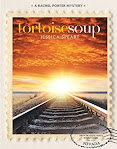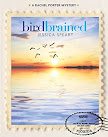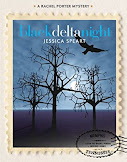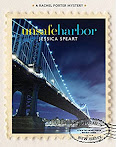 |
| Jessica Speart |
Few mystery writers pour their personal passion into their fiction to get their message across as successfully and as brilliantly as multi-book author Jessica Speart. Published traditionally by such as Severn House, William Morrow, and others as one of the most addictive thriller series, the acclaimed American author’s plots are based on true, wildlife issues. Elephants slaughtered for their tusks, sharks for their fins, rhinos for their horns, and other species for their rarity, many endangered, form the focus of Rachel Porter’s action-packed sleuthing. An agent for the U.S. Fish and Wildlife Service, (USFWS), the fictional character is a composite based on real agents who investigate smuggling, murders, and criminals who break the laws that cover illegal species trading.
Casting a worldwide net, Speart sets her mysteries in several American states, and peoples them with characters in Mexico, Russia and other countries where illegal hunting is at its most prevalent such as Hawaii for its rare reptiles and exotic birds in Florida, but what stands out the most is the remarkably meticulous and detailed research that Speart brings to her books. The reader learns a wealth of fascinating facts told in an often-humorous style while at the same time learning how poachers work, the tools needed to trap tortoises, and the clever ruses criminals use that include the rich and famous with their collecting obsessions.
‘Doing research is essential to my writing,’ she said. ‘The idea is not to just make things up [but] to provide facts in a compelling way.’
An investigative freelance journalist for several years after studying theater at the Boston University College of Fine Arts, and stints as an actress off-Broadway, in commercials, and soap operas, Speart switched from acting to writing.
“I needed to get away for a while and ended up going to Africa. It was there that I witnessed the poaching of elephants for their ivory and rhino for their horns. I came home determined to do something to try and help.”
Speart took a direct approach and began her magazine career writing stories about the USFWS special agents and their investigations. She became fascinated with their work. Many of her articles involved wildlife and drug-trafficking crimes and were published in the New York Times, Mother Jones, and many other outlets. But the subject matter, she discovered, wasn’t high on the list of law enforcement agencies. An animal lover, she decided to take justice into her own hands by starting a crime series, knowing the popularity of mysteries and thrillers could give her topic a voice.
“My first ten books are the fictional Rachel Porter mystery series,” she said, “which sprang from my magazine work. I became frustrated with the outcome of many wildlife cases. The illegal trade in endangered species is worth between $15-20 billion a year and yet the fines and punishment remain low.”In the process Speart became an expert in demand at endangered species conferences, a keynote speaker at a wide range of distinguished forums including the American Museum of Natural History, John Jay College of Criminal Justice, chapters of the Audubon Society, and others, and a frequent guest on television shows and documentaries.
“The transition from non-fiction journalism to fiction wasn’t difficult, given the reality of the issues,” she said, having covered cases from initial suspicious behavior to arrest and conviction.
The fast-paced Rachel Porter series begins with what could be considered fragments of the author’s own life. Titled Gator Aide, it takes place in the steamy bayous of Louisiana and the New Orleans French Quarter, featuring an alligator chained to a bathtub with a dead stripper nearby. The book’s characters include cops, killers, drag queens, and corrupt politicians.


Primates Inhabit book 4, Border Prey and the locale is the Mexican border. Not too
surprisingly because they exist in real life, there’s a game ranch
stocked with rare antelopes, Indian deer, and African oryx for the rich
to hunt down and kill for sport. Rachel Porter unwittingly joins the
group on the wrong side of the party.


A Killing Season provides a dazzling backdrop to the puzzle.
Books 7, 8 and 9 see Rachel once again shuttled off to other states to get her out of her boss’ hair. This time she is sent to Georgia with its manatees in Coastal Disturbance, and then to northern California with Blue Twilight in which a collector is obsessed with a rare butterfly. Again, Speart’s research brings reality to the characters, locales, and plot lines. In Restless Waters Rachel is back in Hawaii to chase down those who upset the fragile ecological.


Following up on the true case she flew to Japan and went undercover to make friends with the man. Soon, she discovered he was setting her up. A thriller, indeed. Whether writing non-fiction or fiction Speart spends time outlining her books before giving it its freedom.
“I’m a big outliner, especially when it comes to writing a mystery. Otherwise, it’s like driving your car through a tunnel without lights on a dark night. You are bound to have an accident.”
She noted that some authors spend a year-sometimes two or three – nurturing their book. “Then comes the morning when we finally have to let go and the book takes on a life of its own.” Speart finds that releasing a published book is exciting and frightening both at the same time.
“There’s the rush of having the published book hit the stores, there’s the fear that no one will like it. But what about those folks who read your book and become angry?”
After Blue Twilight went on sale a small group of butterfly collectors felt she had attacked them, and, in turn, began attacking her.“Apparently, I’d hit a nerve,” she said. “I’m not saying butterfly collecting is a crime but there are those who cross the line between collecting legal butterflies versus collecting protected and endangered butterflies. There are instances where even legal butterflies have been over-collected.”
The author points out that there is a class system when it comes to species being valued, and that if they were chimps, tigers and other’s public reaction would be one of horror. She continues the argument on her website in one of her blogs. She also discusses the difference between the two styles, saying that narrative non-fiction is fact-based storytelling employing some of the same skills that are used in fiction, setting each scene, presenting fascinating characters, and creating a strong narrative persona. As for specific dialogue in non-fiction, Speart again brings her research to the forefront.
It requires, she says, exhaustive digging which is something she enjoys.She also points out that narrative non-fiction doesn’t have to be told as purely objective journalism.
Writers can bring emotion to their characters and create a sense of drama while following the story arc.
A few books that fit into the discussion are some of her favorites including In Cold Blood by Truman Capote; Into Thin Air by Jon Krakauer; The Orchard Thief by Susan Orlean; The Perfect Storm by Sebastian Junger, andMidnight in the Garden of Good and Evil by John Berendt, a book that began Speart’s love affair with the city of Savannah.
Jessica Speart teaches an advanced mystery writers workshop in Connecticut, and reminds students:
“You have to believe in your work and not give up. Writing is a rough business and not for the faint of heart.”
Jill Amadio hails from Cornwall, U.K, like the character in her crime series, Jill was a reporter in Spain, Colombia, Thailand, and the U.S. She is a true crime author, ghosted a thriller, writes a column for Mystery People ezine, and freelances for My Cornwall magazine. She lives in Southern
California.
Her most recent book is
In Terror's Deadly Clasp

Published 16 July 2021
http://jillamadiomysteries.com/



No comments:
Post a Comment